Features, Importance & Benefits Of Search Engine Marketing
When it comes to digital marketing, Search Engine Marketing (SEM) is the best way for businesses to get more online exposure and grow faster. This all-encompassing method includes many important factors in today’s competitive environment.
It is impossible to stress how important SEM is, from its ability to precisely target ads to its instant effect on brand recognition and sales. This blog post will go into detail about the many benefits of Search Engine Marketing, as well as its many complex features.
What Is SEM (Search Engine Marketing)?

Search Engine Marketing (SEM) is a digital marketing strategy to promote websites through organic search engine results. It primarily leverages paid search engine advertising, where ads appear prominently at the top of Google results pages in response to user queries.
Unlike Search Engine Optimization (SEO), which focuses on enhancing organic web traffic, SEM relies on paid advertising to achieve immediate visibility.
While SEO is integral for a comprehensive marketing plan, SEM offers businesses the advantage of quick and targeted promotion.
Many organizations opt for a synergistic approach, combining SEO and SEM strategies to maximize website traffic and enhance online visibility.
Basic Concepts Of SEM

Search Engine Marketing (SEM) is a comprehensive digital marketing strategy that aims to enhance a website’s visibility on search engine results pages (SERPs) through paid advertising. Here are some basic concepts related to SEM:
Search Engine Optimization (SEO):
- SEO involves optimizing a website’s content and structure to improve its organic (non-paid) search engine ranking.
- It focuses on keywords, content quality, website structure, and backlinks to improve a site’s visibility on search engines.
Combining SEM and SEO:
- For a robust internet marketing plan, it’s advisable to integrate both SEM and SEO strategies.
- While SEO works on organic visibility, SEM involves paid advertising for immediate visibility.
SEM Positioning:
- SEM positioning refers to paying search engines to display website advertisements on their SERPs.
- Keyword bidding is a common practice where advertisers bid on specific keywords, displaying ads when users search for those keywords.
SEM Campaign:
- An SEM campaign is a structured set of initiatives with a specific goal, such as increasing website traffic, generating leads, or promoting a product.
- It includes elements like selected keywords, ad text, and targeting parameters.
Google Ads:
- Google Ads is a leading platform for SEM, allowing businesses to create and manage ads that appear in Google’s search results.
- It provides a variety of advertising formats, including text ads, display ads, and video ads.
Components of SEM Campaign:
- Keywords: The terms or phrases users might enter into search engines.
- Ad Text: The advertisement’s content is displayed on the search results page.
- Targeting Parameters: Criteria used to define the audience that will see the ads, including demographics, location, and device type.
Campaign Monitoring and Optimization:
- Regular monitoring and analysis of campaign performance are essential for optimizing SEM initiatives.
- Adjustments can be made to keywords, ad text, and targeting parameters based on the campaign’s effectiveness.
Conversion Tracking:
- SEM campaigns often involve defining and tracking conversions, such as a user making a purchase or filling out a form.
- Conversion tracking helps assess the success of a movement in achieving its objectives.
Budget Management:
- Advertisers must allocate and manage budgets effectively to get the best return on investment (ROI) from their SEM campaigns.
Key Benefits Of Search Engine Marketing

1. Enhanced Visibility and Brand Awareness
Search Engine Marketing (SEM) offers businesses unparalleled visibility on search engine results pages (SERPs). By leveraging paid advertising, companies can secure prime positions at the top of the search results, ensuring their brand is prominently displayed to users actively seeking relevant products or services. This increased visibility drives immediate traffic and contributes to long-term brand awareness. Users are more likely to consistently remember and trust brands they encounter, fostering a lasting impact on brand perception and recognition.
2. Targeted and Qualified Traffic
One of the significant advantages of SEM is the ability to target a particular audience. Through keyword targeting, businesses can tailor their ads to appear only when users search for specific terms or phrases. This precision ensures that the traffic driven to the website will more likely be interested in the products or services offered. Unlike traditional advertising methods, SEM allows for precise audience segmentation, delivering a stream of qualified leads more likely to convert into customers, thereby maximizing the return on investment (ROI).
3. Immediate Results and Quick ROI
SEM provides businesses with the unique advantage of delivering immediate results. Unlike organic methods like Search Engine Optimization (SEO), which may take time to show significant results, paid advertising can drive traffic to a website almost instantly. This swift response is particularly beneficial for time-sensitive promotions, product launches, or events. Additionally, the ability to measure and track results in real time allows businesses to quickly assess the effectiveness of their campaigns, enabling prompt adjustments to optimize performance and ensure a rapid return on investment.
4. Measurable and Transparent Performance Metrics
One of the standout features of SEM is the comprehensive set of performance metrics that can be tracked and analyzed. Businesses can gain insights into various key performance indicators (KPIs) such as click-through rates (CTR), conversion rates, cost per click (CPC), and overall return on ad spend (ROAS). This wealth of data empowers marketers to make informed decisions, refine their strategies, and allocate budgets effectively. The transparency of SEM analytics enables businesses to understand the impact of their campaigns, identify successful strategies, and continually improve their marketing efforts.
5. Flexible Budget Control and Cost Efficiency
SEM provides businesses with remarkable flexibility in budget control. Advertisers can set daily or monthly budgets, ensuring complete control over advertising expenses. This flexibility is especially advantageous for businesses of all sizes, allowing them to scale their campaigns based on performance and financial capabilities. The pay-per-click (PPC) model also ensures that advertisers only incur costs when users click on their ads. This cost-efficient approach maximizes the value of marketing budgets by focusing spending on actual engagement and interaction with the target audience.
6. Geographic and Demographic Targeting
SEM platforms offer advanced targeting options, enabling businesses to reach specific geographic regions and demographics. Advertisers can tailor their campaigns to target users based on location, age, gender, interests, and other relevant factors. This level of granularity ensures that marketing efforts are directed toward the most relevant audience, increasing the likelihood of conversions. Geographic targeting is particularly valuable for businesses with local or regional focuses, allowing them to concentrate their efforts on users within their target market, optimizing relevance and efficiency.
7. A/B Testing for Continuous Improvement
SEM allows businesses to conduct A/B or split testing, a powerful method for optimizing ad performance. Advertisers can create multiple variations of an ad and test them against each other to determine which performs better. Elements such as ad copy, visuals, calls-to-action, and landing pages can be systematically tested to identify the most effective combinations. A/B testing provides valuable insights into user preferences and behavior, allowing businesses to refine their strategies continually. This iterative process of testing and refinement contributes to ongoing campaign improvement, ensuring that marketing efforts align with changing user expectations and industry trends.
8. Adaptable to Changing Trends and Market Dynamics
In the dynamic landscape of online marketing, staying adaptable is crucial for success. SEM allows businesses to swiftly adapt to changing trends, user behaviors, and market dynamics. Unlike traditional advertising methods that may require extensive lead times and resources for adjustments, SEM campaigns can be modified in real-time. This agility is particularly advantageous in industries with rapidly evolving trends or seasonal fluctuations in demand. Businesses can seize new opportunities, respond to emerging challenges, and stay ahead of the competition by quickly adjusting their SEM strategies to align with evolving market conditions.
Who Can Benefit from SEM?

People across various industries and roles can benefit from Search Engine Marketing (SEM). Businesses aiming to sell products online find SEM particularly advantageous, as it offers a targeted approach to reach potential customers.
The simplicity of tracking and targeting in SEM makes it accessible for individuals and organizations seeking to enhance their online visibility. If you can provide a solution to a user’s query on a search engine and find it financially viable, SEM becomes a powerful tool for driving traffic and conversions.
Whether you are a small business owner, a marketer, an e-commerce entrepreneur, or a service provider, leveraging SEM can significantly amplify your online presence and contribute to the success of your digital marketing efforts.
Best Platforms For Search Engine Marketing

Search Engine Marketing (SEM) has become an indispensable strategy for businesses aiming to enhance their online visibility and drive targeted traffic. Several platforms have emerged as critical players in the SEM landscape, each offering unique features and advantages. Here are some common platforms for Search Engine Marketing:
Google Ads (formerly Google AdWords):
- Overview: Google Ads is the powerhouse of SEM, the most popular global search engine.
- Access and Cost: Users can create an account with a Google account and start advertising with a minimum budget of $10 per day.
- Keyword Targeting: Advertisers choose specific keywords, and their ads appear when users search using those terms.
- Insights and Tools: Despite its challenges, Google Ads provides robust tools and extensive data, offering valuable insights for campaign optimization.
Bing Ads:
- Overview: Bing Ads is a significant player in SEM, known for its lower cost-per-click (CPC) than Google.
- Global Reach: Advertisers can tailor campaigns to different time zones and modify parameters independently within an ad group.
- Optimization Features: Bing Ads stands out for its robust geographical targeting, ad network distribution, and budget-setting features.
- Alternative or Complement: While less dominant than Google Ads, Bing Ads is considered an effective alternative or complement to reach a broader audience.
Yahoo Gemini:
- Overview: Yahoo Gemini offers a unique combination of search and native advertisements, making it distinct in the SEM landscape.
- Native Advertising: Gemini’s native ads, including content suggestion boxes and stream commercials, provide alternatives to traditional promotion.
- Inbound Marketing: Native advertising on Yahoo Gemini contributes to successful inbound marketing campaigns by establishing credibility and targeting an audience already interested in the material.
SEMrush:
- Overview: SEMrush is a comprehensive platform beyond traditional search engine marketing.
- Competitive Analysis: SEMrush offers thorough analytical capabilities through its project dashboard, allowing advertisers to analyze the competition.
- SEO Insights: Besides SEM features, SEMrush provides campaign-specific SEO advice, enabling users to optimize their projects effectively.
WordStream:
- Overview: WordStream provides a free tool for evaluating SEM performance and identifying areas for improvement.
- Keyword Duplication: Users can identify keyword duplication across ad groups, accounts, and campaigns, enhancing performance and quality scores.
- Campaign Optimization: WordStream’s tool suggests keywords to improve a campaign’s effectiveness, allowing users to adjust bids and create new ads based on the recommendations.
Some Concerns Regarding SEM

Several concerns surround Search Engine Marketing (SEM). While the long-term costs can accumulate as SEM operates on a pay-as-you-go model, efforts can be made to optimize and reduce Cost Per Click (CPC) over time.
However, the competitive nature of SEM keywords can impact ad visibility, potentially leading to higher prices and a less favorable return on investment.
Ad blockers pose another challenge, as users employing such tools may not see your advertisements.
Additionally, the presence of ads in search engine results may be perceived as intrusive or bothersome by some individuals.
These concerns highlight the need for businesses to manage their SEM strategies carefully, considering budget constraints, competition, and user preferences to achieve optimal results.
Strategies For Effective Search Engine Marketing

Implementing a successful Search Engine Marketing (SEM) strategy requires careful planning and execution. Here are key strategies to ensure the effectiveness of your SEM campaign:
Crafting a Comprehensive Plan:
- Setting Objectives: Clearly define the goals of your SEM campaign, whether it’s increasing website traffic, generating leads, or boosting sales.
- Competitor Analysis: Assess competitors to identify your industry’s strengths, weaknesses, and opportunities.
Platform Selection for SEM:
- Choose SEM platforms wisely. With its extensive user base, Google Ads is a primary choice, while Bing Ads can reach audiences that Google might miss.
SEO Keyword Analysis:
- Conduct thorough keyword research to determine the terms potential customers use. Utilize online Keyword Research tools to compile a list of relevant keywords.
Crafting Clever Search Ad Text:
- Write compelling ad copy that aligns with chosen keywords. Make a solid first impression to encourage users to click on your ad.
Making the Most of Paid Search Ads:
- Continuously optimize SEM campaigns. Test and refine elements such as the structure of search ads accounts, expansion of the keyword list, defensive terms, bidding methods, and audience targeting.
Campaign and Account Organization:
- Organize Google Ads campaigns into a multi-tiered structure, including ads, keywords, and ad groups. Proper organization enhances performance analysis and budget management.
Assessing the Success of SEM Campaigns:
- Regularly monitor and evaluate the success of your SEM campaign. Key metrics include:
- Click-Through-Rate (CTR): Measure the percentage of users who click on your ad after seeing it.
- Conversion Rate: Evaluate the percentage of users who complete a desired action (e.g., purchase or sign-up).
- Cost-Per-Action (CPA): Determine the cost incurred for each chosen activity.
- Evaluation of Product Quality: Ensure the quality of products or services aligns with customer expectations.
Budgeting and Financial Planning:
- Develop a budget that aligns with your campaign goals. Allocate funds strategically to maximize return on investment (ROI).
Continuous Optimization:
- SEM campaigns should not have a fixed endpoint. Continuously optimize based on performance data, adjusting bidding strategies, ad text, and keywords to improve outcomes.
Why You Should Hire an SEM Agency?

Hiring a Search Engine Marketing (SEM) agency can be advantageous for businesses navigating the complexities of platforms like Google Ads. Here are some reasons why engaging a SEM agency can be beneficial:
- Strategic Planning: SEM agencies assist in defining campaign structures, keywords, ad groups, goals, and budgets during the planning phase, ensuring a solid foundation for success.
- Keyword Research and Management: Agencies excel in finding the most effective keywords and managing their matching levels to optimize campaign performance.
- Ad Copywriting: Crafting compelling ad text that grabs attention and encourages clicks is a specialized skill agencies bring.
- Data Analysis: Continuous analysis of campaign data enables agencies to make informed decisions, enhancing overall campaign effectiveness.
- Quality Score Optimization: Agencies optimize campaigns for a high-quality score, leading to better ad placements and potentially lower Cost Per Click (CPCs).
- Bidding Strategy: SEM agencies devise and implement effective bidding strategies to help businesses achieve their goals and maximize returns.
FAQs
What are the primary benefits of SEM for businesses?
SEM offers targeted visibility, immediate results, and the ability to reach potential customers actively searching for products or services, resulting in increased website traffic and possible conversions.
How does SEM contribute to brand visibility and awareness?
SEM places ads directly in front of users searching for related keywords, effectively increasing brand visibility and making businesses more discoverable among their target audience.
Can SEM help in generating qualified leads?
Yes, SEM allows businesses to target specific demographics and user intents, attracting potential customers more likely to convert, thereby generating higher-quality leads.
What role does SEM play in the growth of online sales?
SEM drives targeted website traffic, increasing the chances of converting visitors into customers, thereby contributing significantly to online sales growth.
Is SEM cost-effective compared to other marketing strategies?
SEM offers a flexible budgeting system, allowing businesses to control costs effectively. Companies can optimize spending for maximum ROI with precise targeting and measurement tools.
How quickly can businesses see results from SEM campaigns?
Unlike traditional marketing efforts, SEM provides immediate visibility once campaigns go live. Results in terms of increased traffic and conversions can be observed in a relatively short period.
Does SEM complement other marketing strategies?
SEM works synergistically with other marketing efforts like SEO, content marketing, and social media. When combined strategically, they amplify overall marketing effectiveness and visibility.
Which Search Engine Marketing Platform Is The Best?
Determining the best search engine marketing (SEM) platform depends on your specific goals, budget, and preferences. Popular SEM systems like Google Ads, Bing Ads, Yahoo Gemini, SEMrush, and WordStream offer distinct advantages.
Each platform employs diverse approaches aimed at the goal of increasing targeted website traffic. To maximize SEM benefits, evaluate each platform’s available tools and features, considering cost, global reach, analytics, and unique offerings.
There’s no one-size-fits-all solution, so choose the platform that aligns best with your objectives and financial constraints. Ultimately, thorough research and consideration will guide you in selecting the most effective SEM tool for your needs.

















































